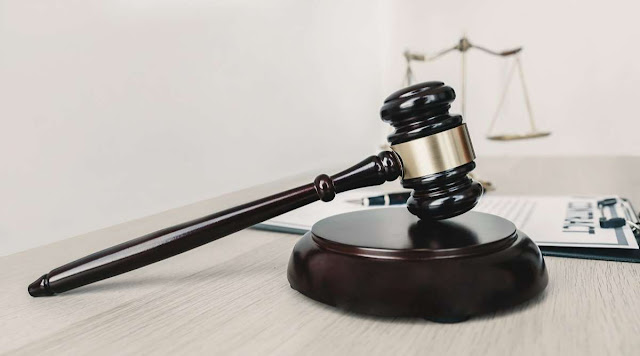In case that civil lawsuit cannot be mediated or cannot conduct
the mediation, the Judge shall hold the meetings for checking the handover,
access, disclosure of evidences and mediation. In cases there are many parties
in a case and some of them are absent but present parties agree to conduct the
meetings and the conduct of the meeting does not affect rights and obligations
of absent parties, the Judges shall conduct meeting between present parties. If
parties request to postpone the mediation meeting until all parties attend, the
Judge shall postpone the meeting. The Judges must notify postponement and
re-open of meeting to the parties. The litigation dispute lawyers in Vietnam
could be the best advisors to the client to utilize the procedures for the best
interests of their client depending on the situation.
Procedures for Postponement at the
First Instance Court
In the first-instance court hearings, when being summoned duly the
the Court for the first time, the parties or their representatives and defense
counsels shall be present at the Court hearings. If any of them is absent, the
Trial Panel shall postpone the Court hearings, unless such person requests for
trial in his/her absence. The Courts must notify the postponement of the Court
hearings to the parties, their representatives and defense counsels. When being
summoned duly for the second time, parties or their representatives and defense
counsels shall be present at the Court hearings unless they request for trials
in their absence. If the absence is caused by a force majeure event or an
objective obstacle, the Court may postpone the Court hearings, otherwise the
Court shall handle as follows: (i) The absence of plaintiff without his/her
representative shall be considered giving up the lawsuit initiation, thus the
Court shall issue a decision to terminate the case resolution for his/her
request for lawsuit initiation, unless such plaintiff requests for trials in
their absence. The plaintiff may re-initiate lawsuits according to law
provisions; (ii) If neither the defendant without counter-claims or a person
with relevant interests and duties (relevant person) without independent claims
nor his/her representative participates in the Court hearings, the Court shall
conduct trial in their absence; (iii) If neither the defendant with
counter-claims nor his/her representative participates in the Court hearings,
such defendant shall be considered giving up the counter claims, thus the Court
shall issue a decision to terminate the resolution for his/her counter claims,
unless such defendant requests for trial in his/her absence. The defendant may
re-initiate lawsuits for his/her counter-claims according to law provisions;
(iv) If neither relevant person with independent claims nor his/her
representative participates in the Court hearings, such person shall be
considered giving up the independent claims, thus the Court shall issue a
decision to terminate the resolution for his/her independent claims, unless
such person requests for trial in his/her absence. Such person may re-initiate
lawsuits for his/her independent claims according to law provisions; (v) If the
defense counsels of the parties is absent, the Court shall conduct trial in
their absence.
When the witnesses are absent, the Trial Panels shall decide to
conduct trial or to postpone the court. The Trial Panels shall still conduct
trial if the witnesses are absent but have earlier given their testimonies in
person or sent their testimonies to courts. The presiding Judges shall make
such testimonies public. The Trial Panels shall decide to postpone the Court
hearings if the absence of the witnesses at Court creates difficulties or
affects the objective and comprehensive resolution of the cases.
If the expert-witnesses are absent, the Trial Panels shall decide
to conduct trial or to postpone the court. If the interpreters are absent
without substitutes, the Trial Panels shall decide to postpone the Court
hearings. If expert-witnesses or interpreters must be replaced, the Judges, the
Trial panels or the Civil matter-resolving council shall issue decisions to
postpone the Court hearings.
When any procedure participants are absent from Court hearings and
it does not fall into the cases which the Courts must postpone the Court
hearings, the presiding Judges must ask if there is any one requesting to
postpone the Court hearings. If there is, the Trial Panels shall consider and
decide to accept or not accept such request. In case of non-acceptance, the
reasons must be clearly stated.
In addition to absence and change of procedure participants, the
change of procedure-conducting person may make the Court hearings be postponed.
Firstly, in case of change of the Judge, People’s Jurors, Ombudspersons, Court
clerks, procurators, the Trial Panels shall issue decisions to postpone the
Court hearings.
Decision on postponing the Court hearings in above circumstances
is made by Trial Panels and the time limit for postponing shall not exceed 01
month or not exceed 15 days, applicable to Court carried out under simplified
procedure, from the day on which the decision to postpone the Court session is
issued.
Having said that, the client could rely on the litigation dispute lawyers in Vietnam for
the solution in each case to protect the best interests if postponement
procedures of the first instance trial could be applied.
We are a law firm in Vietnam with international
standard, local expertise and strong international network. We focus on
customers’ needs and provide clients with a high quality legal advice and
services. For advice or services request, please contact us via email
ant@antlawyers.vn, or call us +84 24 730 86 529
















